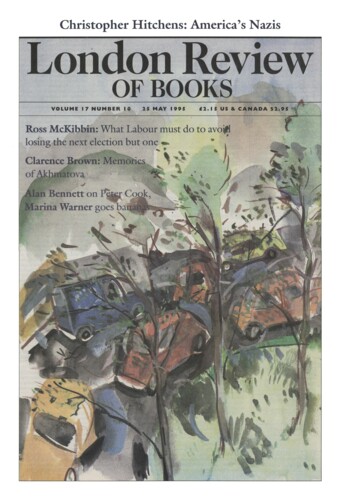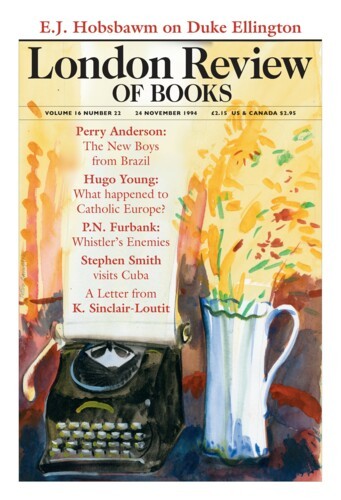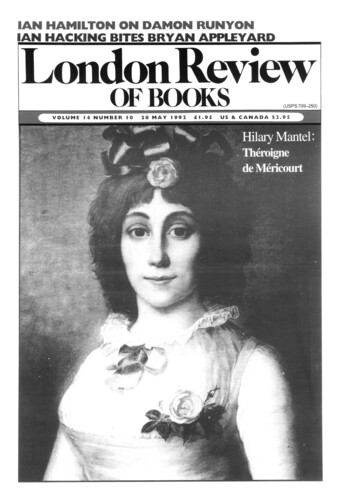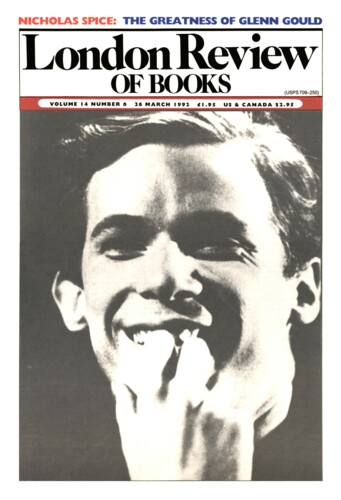The Middling Sort
Alan Ryan, 25 May 1995
Christopher Lasch, who died last year, has been rather undernoticed in Britain. His attention was admittedly focused on American politics and political thinking, but his fears and anxieties translate readily enough to a Britain showing many of the same symptoms of social and political disaffection, while his politics and his polemical style were those of an urbanised Cobbett – radical, popular, egalitarian and quite unplaceable on a left-right spectrum.




